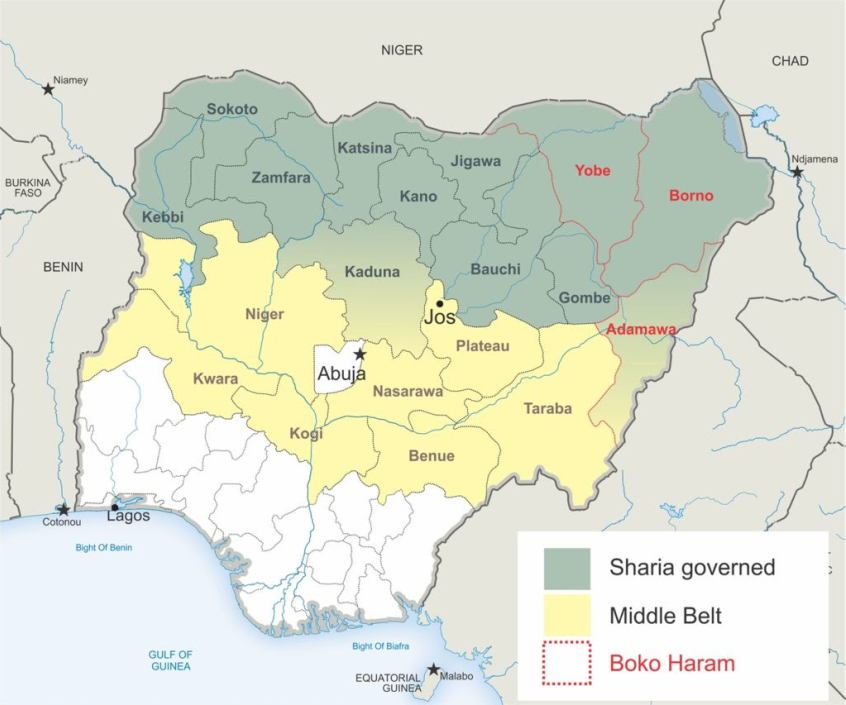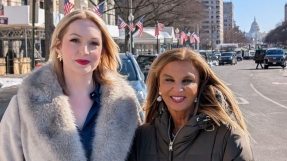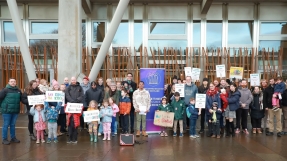
A lot has been made in recent weeks of the Black Lives Matter campaign to take down statues, root out racism and defund the police. Yet for all the uproar and at times vandalism, little has been made of the routine slaughter of Nigeria's Christians and other innocent citizens, who are also black people with valuable lives in the insecurity-ravaged middle-belt and northern regions of the country.
The International Committee on Nigeria (ICON) recently reported that Boko Haram, whose capture of vulnerable teenage girls such as Leah Sharibu made headlines in 2018, has killed 43,242 Nigerians since 2010. In addition, Fulani jihadists slaughtered 17,284 Nigerians since 2010, bringing the combined total to 60,526. The true number is feared to be far higher owing to mass burnings, chaotic attack aftermaths, disappearances and population displacement.
Many of the tens of thousands of silently slaughtered souls are Christians, as well as Muslims who refuse to go along with the growing Islamist extremist narrative. As UN investigators suggest over 10,000 Rohingya Muslims have been tragically murdered, clearly Nigeria's unfolding genocide has now surpassed even the horror stories of Burma in recent years.
As the UK takes its role in this post-Brexit era as a global leader on the world stage, it is vital that the new FCDO (as the FCO will become from September) leads the way in providing equal or more amounts of funding to help persecuted Christians in Nigeria's north as we did for the Rohingya Muslims in Burma. As we buff up our human rights credential, we must extend the very welcome Magnitsky sanction lists to perpetrators of freedom of religion or belief (FoRB) violations, and we must also consider suspending military co-operation as we did in Burma.
British involvement could be tainted as being ineffective in this decade-long fight with the insurgents, who yet seem to be waxing stronger. The UK must use its influence on the UN Security Council to push for resolutions to save the lives of innocent citizens and yes, Boris Johnson must lead from the front by publicly speaking truth to the international community.
ICON shows there have been at least 7,558 terrorist-related incidents in the last decade, with the insurgency far worse in Nigeria than in the surrounding West African countries. In many ways this mirrors the notorious crisis facing Burma's Rohingya Muslims. Much like them, denied state protection or citizenship from both Burma and Bangladesh, northern Nigeria's Christians are confronted with roaming Islamist hordes in the Chad border region and terrorists from the Sahel looking to expand their caliphate into Nigerian territory (twelve out of the nineteen northern states are currently under Sharia law), and a very docile or deliberately blind administration in the capital Abuja, which is failing in its primary duty to protect its citizens and vulnerable communities.
Much like the suffering Rohingya Muslims, most of the Christians attacked in their churches, homes and farms are native to their region and have tilled the soil for generations. A good number have ended up in internal displacement camps (IDPs), with only minimal UN protection in the midst of violent Islamist activity on one side, and a hapless national Nigerian security force on the other, who have proven to be either unwilling or incapable of defending them. Nigeria's Christians in regions such as Kaduna and the Middle Belt are de facto stateless. There are even reports of Christians being given smaller food rations in these meagre camps.
Just as the Rohingya Muslims suffered brutalities at the hands of the Burmese army, reports emerge too of atrocities committed not only by the resurgent Islamic State, but even by the standoffish aloofness of the Nigerian army itself. Institutional favouritism and corruption is paralleled in both countries, with the Corruption Perceptions Index 2019 placing Nigeria 146<sup>th in the world - two places lower than 2018 - scoring an abysmal 26 points out of a possible 100, level with Iran.
The current Nigerian security establishment has an eighty-twenty Muslim to Christian ratio, despite a nominal aim for parity in the country's institutions. Even though the country has annually received over £300m of British taxpayer money in the form of foreign aid, the Nigerian Army has rarely been less successful in rolling back the new caliphate than it is now.
Clearly, years of empty promises to defend the region's Christians by President Buhari, himself a Fulani, have produced rotten fruit. This ignorance, or worse, is difficult to expose in a country ranked 120 out of 180 for press freedom by Reporters Without Borders who discovered a 'climate of permanent violence' in Nigeria. It ranks just above Afghanistan.
Will we stop ignoring the silent slaughter of Nigeria's Christians just as we rightly deplored the massacre and humiliation of the Rohingya Muslims? For the sake of peace and justice in Africa and the world, I hope the answer will be a resounding 'yes'. Although we are now at the eleventh hour, it is precisely what my humanitarian organisation PSJ UK is working to achieve. If the international response to the abuse of Burma's most vulnerable is anything to go by, then we are cautiously optimistic that Nigeria's cries in the wilderness will no longer go unheard.
Ayo Adedoyin is Chief Executive of PSJ UK, a humanitarian organisation campaigning against the persecution of Christians and other minorities in Nigeria.













